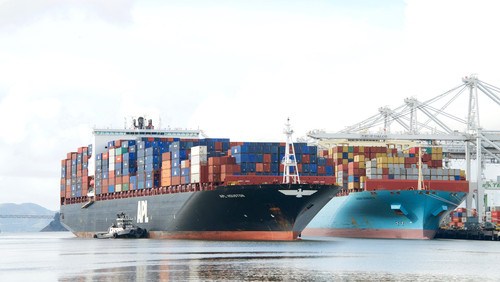Sea-Intelligence has conducted a report on the difference in schedule reliability between alliance and non-alliance carriers on the Transatlantic trade to see if there is an advantage to shipping outside of the three carrier alliances, 2M Alliance, Ocean Alliance and The Alliance.
To achieve this, Sea-Intelligence took the schedule reliability performance for the 25% quartiles, where 25% of the lowest-performing services are at or below, and 75%, where the 25% of the highest performing services are at or above.
The following figures show the difference between the alliance and non-alliance services for both these quartiles, with the non-alliance services segmented into those operated by niche carriers and those operated by major carriers.

In the past few months, 2M’s least reliable services are considerably more reliable than the non-alliance services, while their most reliable services are only marginally below the most reliable non-alliance services.
“This makes 2M more likely to offer a more reliable product than non-alliance services, all things considered,” stated Alan Murphy, CEO of Sea-Intelligence.
As for Ocean Alliance and THE Alliance, their least reliable services are on par with the least reliable non-alliance services, according to Sea-Intelligence analysts, whereas the most reliable non-alliance services are considerably more reliable than the most reliable services of these two alliances.
“This means that in the case of Ocean Alliance and THE Alliance, the non-alliance services are more likely to net a higher schedule reliability on the Transatlantic Westbound trade,” explained Murphy.







